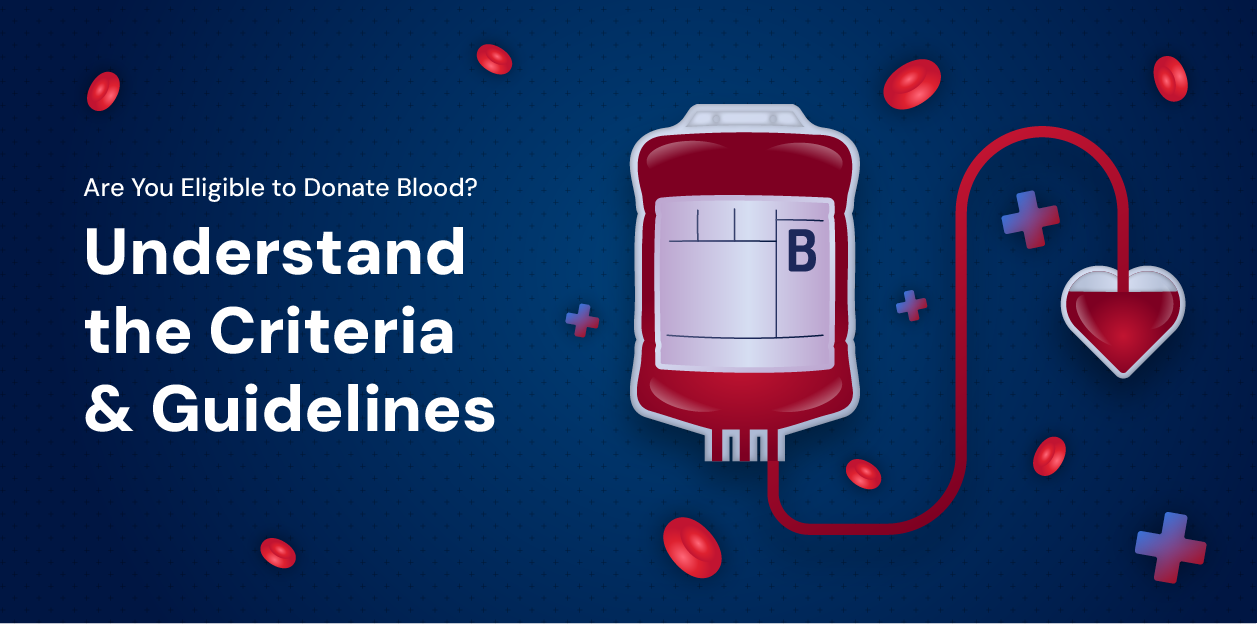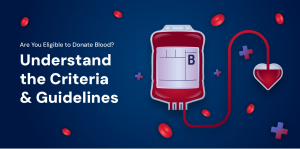Blood donation, a noble act, to say the least, can be a lifesaver for those dealing with serious health conditions or during emergencies such as accidents. The American Red Cross states that each donor can save three lives with just one donation. While this is a heroic act by all accounts, one must meet certain criteria to be eligible for the process.
Eligibility criteria for blood donation
If you are eligible to donate blood, here are some things you should know or ensure before going through with the process:
Eligibility criteria for blood donation
- The donor must weigh at least 45 kilograms
- They should be aged between 18 and 65 years
- Their blood pressure, pulse and temperature should be in the normal range
- The haemoglobin levels must be at least 12.5 g/dL
- If the donor has been diagnosed with malaria, they can donate blood only after three months of recovery
- Those residing in malaria-prone areas should not donate until three years have passed since they recovered from the condition.
- One should not donate if they have received vaccinations for conditions like cholera, typhoid, diphtheria, tetanus or plague in the last 15 days. Additionally, those who have been jabbed with the rabies vaccine should wait for a year
- The donor must not have undergone acupuncture in the past year
- The donor should not have received any new tattoos in the last 12 months
- A willing donor will be disqualified if their arms show scars or marks suggestive of drug use or frequent donations. Also, people with a history of sexually transmitted infections or other high-risk activities are not eligible
- Those with serious illnesses such as cancer, tuberculosis, leprosy, HIV, hepatitis, heart issues, asthma, epilepsy, thalassemia and sickle cell anaemia are not eligible for donation
- One cannot donate if they have bleeding disorders or are taking steroids
- If one has undergone major dental treatment, such as root canal surgeries or implantations, they should wait three days before donating blood
- While diabetics on medications can donate blood, those taking insulin injections cannot do so
- Certain medications can temporarily prevent one from donating blood. Hence, those taking medicines must check with blood banks before going through with the process
- Those who have given birth or are breastfeeding should wait for a year before donating
Things to know before donating blood
If you are eligible to donate blood, here are some things you should know or ensure before going through with the process:
- Blood donation is a voluntary act, so no remuneration will be provided
- The donor’s consent will be taken beforehand
- You will need to bring a valid ID and be prepared to disclose any medications you’re taking or recent travel history
- Drink plenty of water and have a healthy meal beforehand
- Steer clear of alcohol 24 hours before donating and avoid strenuous activity after you have donated
- Understand which blood component you want to donate — whether it’s whole blood, plasma or platelets — as each serves a different purpose
Conclusion
Blood donation is a noble act that has the potential to save countless lives. Understanding the eligibility criteria and guidelines helps ensure the process is safe and impactful.






